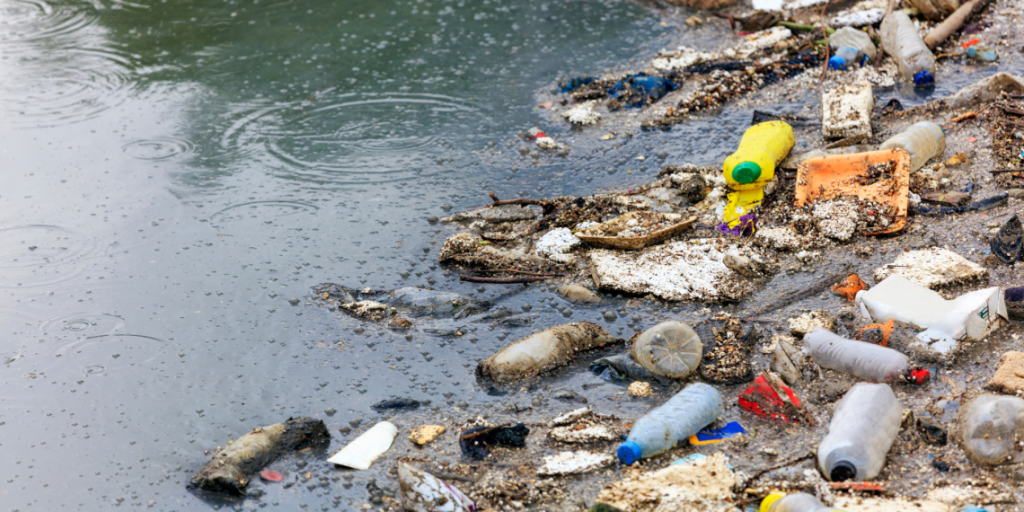
Source;Abdulkareem Mojeed

Plastic bottles polluting a water body (This image was AI generated)
As plastic pollution continues to threaten global ecosystems, high-level stakeholders have converged in Geneva, Switzerland, for a decisive round of negotiations that could reshape international environmental policy.
From 5 to 14 August, countries, international organisations, civil society groups, private sector representatives, and academics are participating in the second part of the fifth session of the Intergovernmental Negotiation Committee (INC-5.2). Their primary mission is to finalise a legally binding instrument to combat plastic pollution, especially in marine environments.
The journey toward this treaty began in March 2022 when the United Nations Environment Assembly (UNEA-5.2) passed Resolution 5/14, calling for a comprehensive, legally binding agreement addressing the full life cycle of plastic. The Intergovernmental Negotiating Committee (INC) was then established, with the goal of completing negotiations by the end of 2024.
To date, meetings have been held across Uruguay, France, Kenya, Canada, and South Korea. Geneva now plays host to the sixth round (INC-5.2), amid rising pressure to resolve deep divisions on the scope and ambition of the treaty.
Africa, although responsible for just 5% of global plastic production, is disproportionately affected by its impacts. Nigeria alone generates up to 3.5 million tons of plastic waste annually, with minimal recycling infrastructure. Lagos State, among others, has begun banning certain single-use plastics, but systemic issues persist.
UNEP and Nigeria’s National Environmental Standards and Regulations Enforcement Agency (NESREA) have introduced strategies like Extended Producer Responsibility (EPR), aimed at making plastic producers accountable for waste. Still, plastic litter chokes cities, waterways, and communities across the nation.
According to the Centre for Science and Environment (CSE), negotiations are hampered by disagreements on production caps, toxic chemicals, and financing mechanisms. Oil-rich countries like Saudi Arabia and Russia resist binding limits on plastic production, while over 100 countries support more aggressive measures.
Meanwhile, procedural reforms and consensus-based decision-making are also contentious. Some countries argue these stall meaningful progress and allow powerful lobbies to dilute the treaty’s strength.
Nigeria, as part of the Africa Group, supports a full life-cycle approach to plastic pollution. The group has been pushing for strong language in the treaty that includes upstream regulations—starting from production, not just waste management.
Countries like Ghana, Rwanda, and Bangladesh have echoed these sentiments, advocating for a holistic strategy that includes marine biodiversity, human health, and sustainable development.
Ahead of the Geneva negotiations, a coalition of scientists warned that the treaty could fall short if scientific evidence on harmful chemicals and plastic production is ignored. They raised concerns over misinformation campaigns led by industry stakeholders to derail progress.
Their statement underscores the need for clear, science-backed commitments to reduce plastic pollution and its associated health risks.
With global attention focused on Geneva, the outcome of these talks could shape international environmental law for decades. Whether the INC-5.2 will deliver a robust and inclusive treaty remains uncertain, especially in the face of industry resistance and geopolitical tensions.
For Nigeria and other affected countries, the stakes are high. Without strong international cooperation and local enforcement, the tide of plastic pollution may continue to rise, damaging ecosystems, livelihoods, and public health.